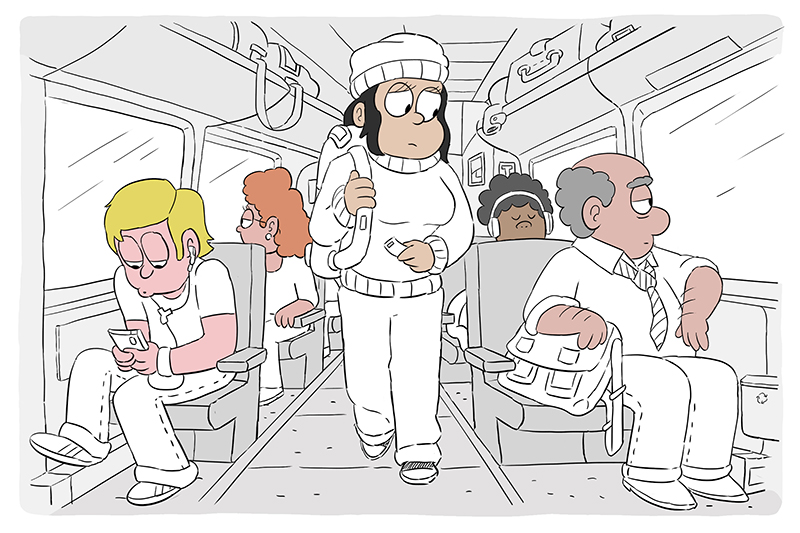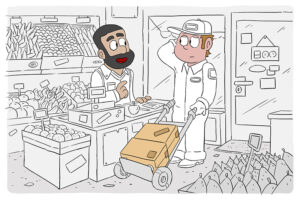
Anxhela goes to visit old friends from Albania, Dea and Ardit, in Rotterdam. She lives in Tilburg. The train is the easiest way for her to travel to Rotterdam. Anxhela gets on the train and sees that it is crowded and the seats are occupied. Well occupied…. There are coats and bags on seats next to people. “No one is offering to clear a seat. Everyone is just on their phones, or reading a book, or looking outside.” Anxhela feels uncomfortable and uncertain and actually a little left out. “Where can I sit?”
A somewhat elderly train passenger sits wide-eyed and looks out. Pooh, finally he is on the train. That was rushing. “Hopefully no one will sit next to me, or worse: make small talk. I’m really not waiting for that after a stressful morning. The silence compartment was already full unfortunately.”
Anxhela sees him and walks quickly through. Perhaps he is an important man. I dare not ask anything.
The connection
Anxhela is looking for a gesture or fleeting eye contact that invites to sit next to someone. But most people on the train are just doing their own thing and like those two seats to themselves.
On many trains or buses, everyone sits alone and little is spoken except by phone or with an acquaintance. A moment to yourself.
This is normal in the Netherlands, but not usually in we-cultures. Always together. Being alone is hard to accept. Then there is something. Where one person likes to be by himself, another thinks that person is lonely. Those feelings are far apart.
And that doesn’t have to change, of course. It is as it is. But Anxhela, of course, has to claim her place and sit somewhere. Just like everyone else. Besides, no one here is impressed by an older man who has his bag next to him on the seat. She can just claim that spot, despite the man’s body language. Addressing people, then it is immediately clear. But that is not the natural way and that it takes effort for someone from a hierarchical we-culture.
This is almost true of all we-cultures. Those are always more hierarchical than ours. So when we think about the differences between the we culture and Dutch I culture, the fact that we in the Netherlands are also much more attached to equality always plays a role. So we feel free to address most people directly.
Want to read more about culture dimensions?
Important to know
This anecdote is based on stories shared with us. Connect2Us strives to highlight the dilemma from both sides and not to label people or suggest that one or the other should behave differently. We see in our daily intercultural work that awareness by those involved is enough to move toward each other without pretending to be very different. Connect2Us aims to help readers recognize and avoid prejudice. Read about prejudice, discrimination and racism here.

